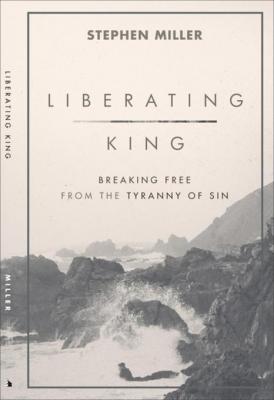⏱️ Estimated Reading Time: 4 min read
In Romans 8:19-21, Paul says that the whole of creation is waiting with “eager longing,” because we are anticipating the day in which “creation itself will be set free from its bondage to corruption and obtain the freedom of the glory of the children of God.” That sounds nice, doesn’t it? But for many of us, we read that verse with still-heavy eyes and hearts. We know our sin and know it well. We trust the Bible is true, but we still wrestle with dismay at how sin reigns in our mortal bodies. What are we to do?
While we know our sin is there, confronting our sin is hard. And buying a book that we know is going to confront our sin is even more difficult. But Stephen Miller’s Liberating King, while it makes no light of sin, proves as a wealth of encouragement instead of a rod of punishment. This book is convicting, but more than anything it is Christ-exalting, and evokes in us not a guilty, tail-between-our-legs waddle back to God, but an unashamed run into His arms. Miller’s emphasis on the “Liberating King” being the foundation for our victory over sin is, truly, freeing.
The Precedence of Worship
One of the themes I most appreciated about this book is the precedence of worship that should be taking place in our lives. Stephen Miller is a worship leader, and obviously a significant voice within the world of church worship. His message about worship is important and encouraging.
Miller makes sure we understand that worship is so much more than singing a song. “Worship is our response to God, allowing us a glimpse of the unimaginable, a comprehension of the incomprehensible, a revelation of the infinite breadth and length, height and depth of the love of God” (68). This carries a lot of weight coming from a musician because Miller is saying that our worship is so deep, so life-asking, that it affects the whole of us. Honestly, I am encouraged to see a prominent worship leader stay theologically grounded and able to speak to our churches with more than songs, as Liberating King will do.
The Inescapability of Worship
One of the great points Miller makes in his book that has stuck with me is the inescapability of worship in our lives. Miller writes, “We can worship no matter what our circumstances because God’s character is not circumstantial” (38). This is significant. Even in the midst of the depths of our despair, we can find an opportunity to worship by turning to Christ and walking in obedience and holiness. Isn’t it encouraging that our God is unchanging, and therefore, our justification is as well? Miller’s reminder here was a balm for me.
How Reading Liberating King Will Affect Our Lives
Miller’s chapters are all devoted to showing how the Liberating King affects various components of our lives. The chapters of this book can be easily divided into two categories: what the Liberating King frees us from, and what the Liberating King frees us to. Of course, we naturally understand how the Liberating King is freeing us from various circumstances. He frees us from the bondage of lies (Ch. 1), from uncertainty and panic (Ch. 3), from self-sovereignty (Ch. 8), and from sin’s destructive cycle (Ch. 9). But notice, Christ also frees us to something. In other words, Christ’s righteousness is more than just saving us out of places we shouldn’t be, but it also propels us into places we should be. Miller expounds on how the King frees us to suffer well (Ch. 2), walk in faithfulness (Ch. 4), towards a life of love (Ch. 5) justice (Ch. 7), and to find our mission (Ch. 6). He culminates these two big topics with a glorious final chapter on Kingdom Come.
[bctt tweet=”Liberating King is a short, but powerful and convicting read.” username=”servantsofgrace”] I appreciate Stephen’s honesty and transparency throughout the book. It is clear he has a heart to see lives transformed through this book. Anyone paying attention to the message in Liberating King will see the glory of Christ and the urgency of worship. This book will profit many to get there.




